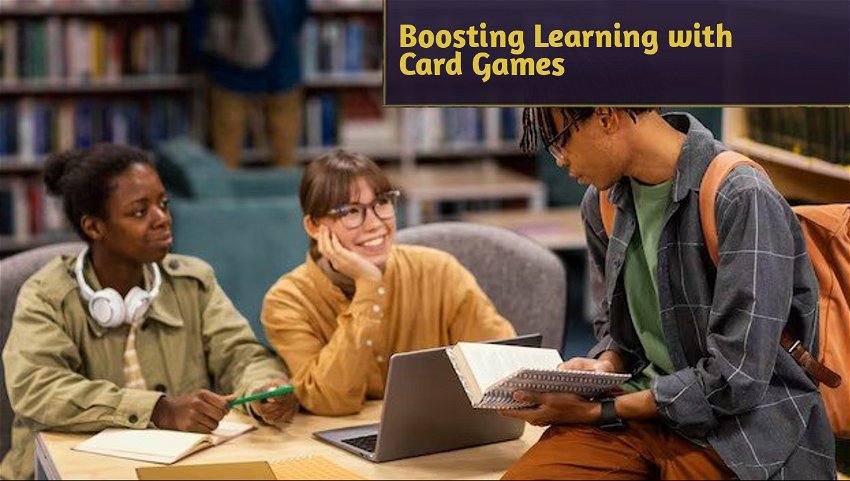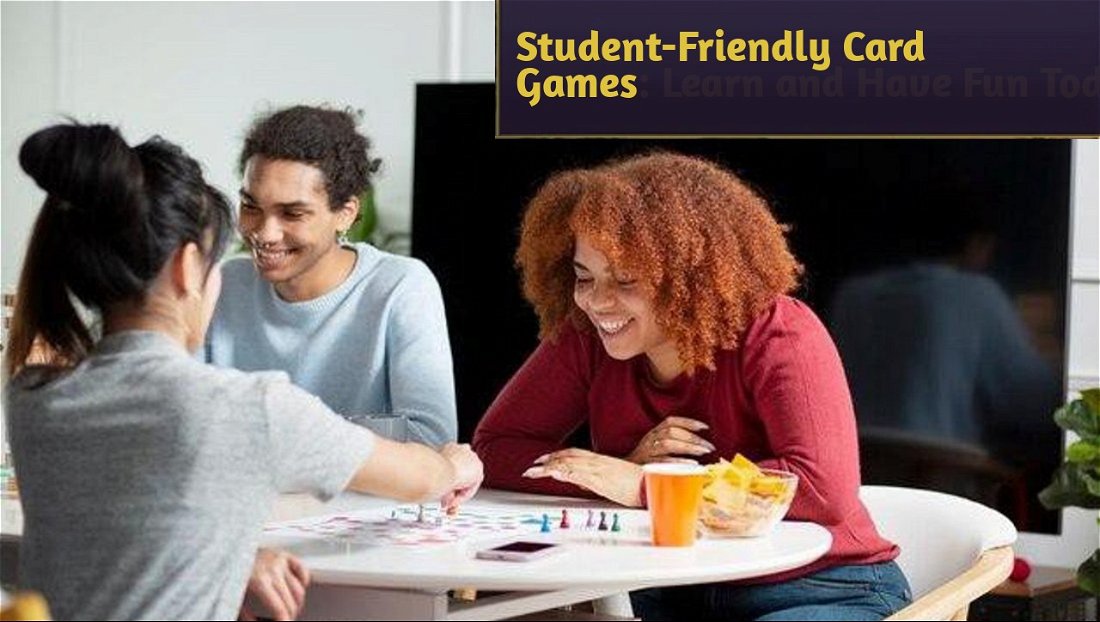The idea of incorporating card games into the learning process may seem unconventional to some, but it can be a fruitful approach. When students are engaged and having fun, they are more apt to learn. With the right card games, teachers can effectively enhance memory and cognitive skills, as well as encourage social interaction and engagement. Let's explore this further.
The Educational Power of Card Games
Card games have been around for centuries, offering entertainment for all ages. But beyond their fun factor, card games also hold immense educational potential. Long before the advent of the digital age, kids and adults alike honed their strategic thinking, problem-solving, and social skills over a deck of cards.
In the classroom, card games can serve as a powerful tool for learning. They can engage students in a way traditional teaching methods sometimes cannot. By sparking interest and providing a break from routine, card games can help students absorb and retain information more effectively. This unconventional teaching tool can make learning fun, which ultimately encourages students to take an active role in their education.
Moreover, card games can offer endless opportunities for customization. Teachers can tailor card games to fit their lesson plans or to target specific areas of learning. The flexibility and adaptability of card games make them a valuable resource in any educational setting.
Card Games That Boost Memory and Cognitive Skills
Many card games are known to boost memory and cognitive skills. For instance, games like Memory, Go Fish, and Crazy Eights require players to remember the cards that have been played and to think strategically about their next move. These games can enhance a student's focus, attention to detail, and memory recall.
Other games like Uno and Bridge can help improve a student's numerical skills and strategic thinking. These games require players to consider their own cards, predict their opponents' possible moves, and make decisions based on those predictions. Such processes can bolster a student's logical reasoning and decision-making skills.
Moreover, complex card games like Poker and Blackjack can push a student's cognitive skills to the limit. These games require a high level of strategic thinking, risk assessment, and mental arithmetic. They can also teach students about probability and statistics, demonstrating these concepts in a tangible and engaging way.
Card Games in the Classroom: A Teacher's Guide
Introducing card games in the classroom requires thoughtful planning and implementation. Teachers need to ensure that the games are age-appropriate, relevant to the curriculum, and engaging for all students. The games should also promote a healthy level of competition without leading to conflicts or disputes.
Teachers can start by introducing simpler games and gradually moving on to more complex ones. This approach can help students become comfortable with the concept of learning through games. Teachers should also take the time to explain the rules of each game, provide demonstrations, and offer guidance as needed.
While card games can make learning more engaging, they should not completely replace traditional teaching methods. Instead, they should complement existing teaching strategies, providing a break from routine and adding variety to the learning process.
Organizing Card Game Tournaments for Learning
Organizing card game tournaments can be an exciting way to foster learning and engage students. Tournaments can encourage students to practice and improve their skills, promote healthy competition, and provide a platform for students to showcase their abilities.
When organizing a tournament, teachers should consider factors like the number of participants, the type of card game, the tournament format, and the rules. They should also think about how to handle disputes, how to keep track of scores, and how to recognize and reward winners.
To ensure a positive and inclusive experience for all students, teachers should make sure that the tournament is fair, transparent, and respectful. They should also ensure that all students understand the rules and have equal opportunities to practice and participate.
Balancing Card Games and Academic Responsibilities
While card games can be a valuable educational tool, it's important for students to balance game time with their academic responsibilities. Teachers can help students understand this balance by setting clear boundaries and expectations. For instance, they can designate specific times for card games and ensure that academic tasks are completed before game time.
Moreover, teachers can use card games as a reward for academic achievements or good behavior. This approach can motivate students to focus on their academic responsibilities and strive for excellence.
Teachers should also remind students that while card games can enhance learning, they are not a replacement for studying. Students still need to review their lessons, complete their assignments, and prepare for tests. In this regard, a research paper writing service can be a valuable resource for students, helping them manage their academic responsibilities efficiently and effectively.
In conclusion, card games can be a fun and effective way to boost learning for students. By incorporating card games into the learning process, teachers can engage students, enhance their memory and cognitive skills, and make learning an enjoyable experience. However, it's important to balance game time with academic responsibilities to ensure that students remain focused on their studies. With the right approach, card games can be a valuable addition to any educational setting.










— Comments 0
, Reactions 1
Be the first to comment